When we think about North Korea, “mundanity” isn’t a concept that typically comes to mind.
We ideate scenes of oppression and social injustice. Our minds fill with imagined horrors built with the brick and mortar of news footage and legacy media. And that makes sense, since atrocity is the thread that weaves together every scrap of the North Korean experience. It’s the cultural tie that binds.
But when photographer Michal Huniewicz illegally documented his time in the country, the resulting collection revealed an image of North Korean life that twists seemingly innocuous imagery into a haunting spectacle of everyday life lived under oppression’s thumb.
We don’t often picture grocery checkout lines, hotel lobbies, and tour buses. We don’t picture life happening in a nation shrouded in mystery and removal.
But it does. Families congregate around TVs playing approved programming. Mothers buy food at the local supermarket. Receptionists check people into their rooms, commuters scramble to catch buses, and pedestrians marvel at skyscrapers. The surface of this way of life is normal. It is ordinary and plain and eerily familiar.
But it’s also performed. That sense of familiarity was entirely orchestrated for Huniewicz’s benefit as a tourist craving an up-close and personal view of a country so few people see from inside.
The facade crumbled as the observant traveler fell into the forced rhythm of his experience. Even his tour guide (pictured above) appeared to have some sort of military standing, as the man was promptly saluted every time someone inspected his papers. Nothing was ever said.
As they drove through Pyongyang, Huniewicz noticed that the city was, in his words, “meant to be a utopian showcase for foreign visitors like ourselves.” Each time the driver felt that the scenery was worth taking in, he slowed down. When he noticed the opposite, he sped up.
They thought they were choreographing the photographer’s every move, but he watched with a careful, critical eye and captured poignant scenes in silence.
That being said, he was not permitted to walk anywhere. He saw what they wanted him to see for exactly how long they wanted him to see it. They circled around this square time and time again, presenting it as the city’s crown jewel.
The more he grew to understand what was happening, the more unsettling it became. Every encounter read like a scripted sketch in which no one wanted to take part.
“The waitresses serving us often seemed a little terrified. This was our first night in North Korea. We dined in the hotel’s basement, debating whether it was bugged and wondering whether we could trust one another,” he said. Paranoia followed the group, tapping Huniewicz on the shoulder every time he dared to turn these moments into snapshots.
The closer he looked, the more disruption he saw. Ordinary scenes were crashed by walking holes in the matrix — uniformed soldiers tasked with making sure no one fell out of line.
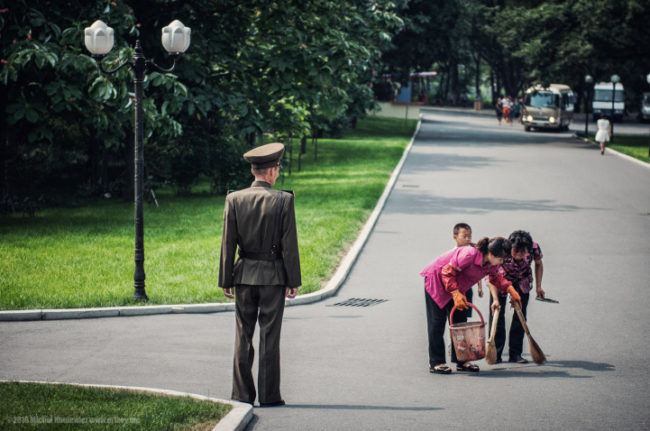
Always one to do his research, Huniewicz realized that these images stood in sharp contrast against what really went on behind closed doors.
In the winter, citizens are forced to collect their own excrement to create fertilizer for spring planting. All across North Korea, imprisonment, enslavement, assault, and government-sanctioned starvation are as normalized as grocery trips and swept sidewalks. If anyone in Huniewicz’s group were to have peeked behind the curtain, that is what they would’ve seen.

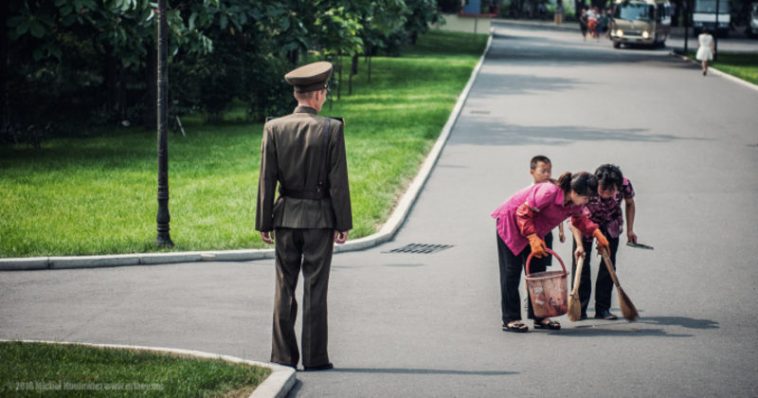
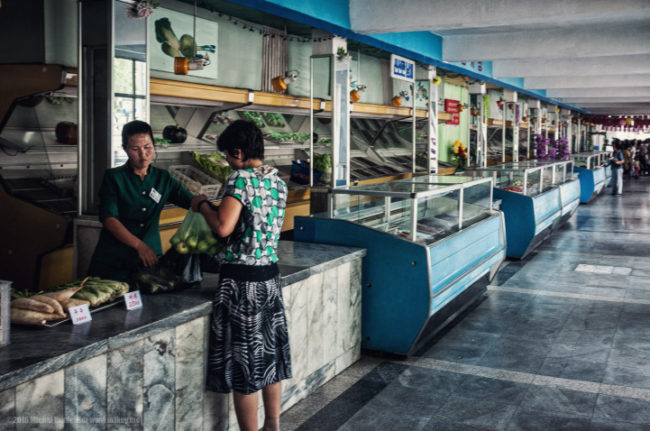
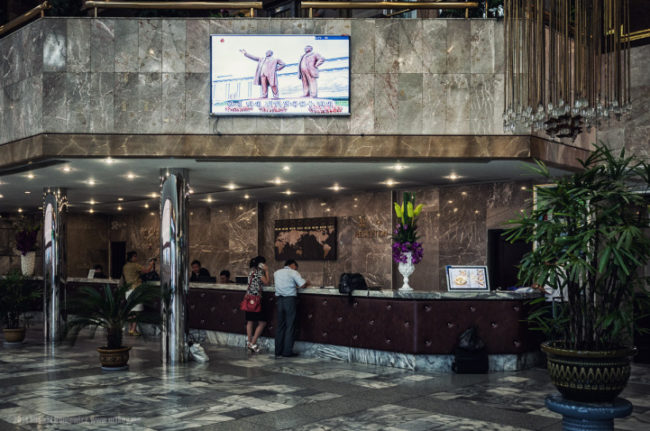
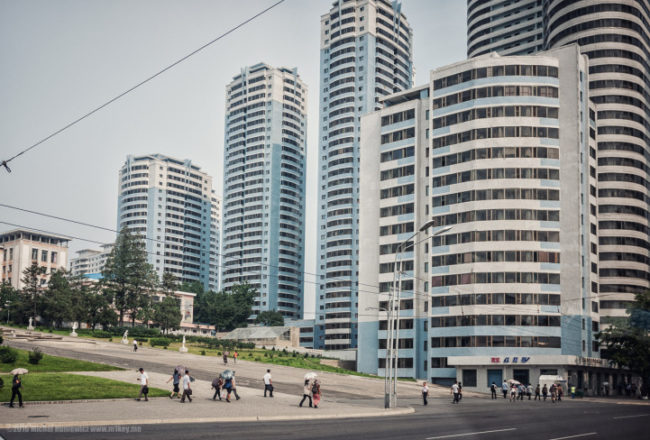
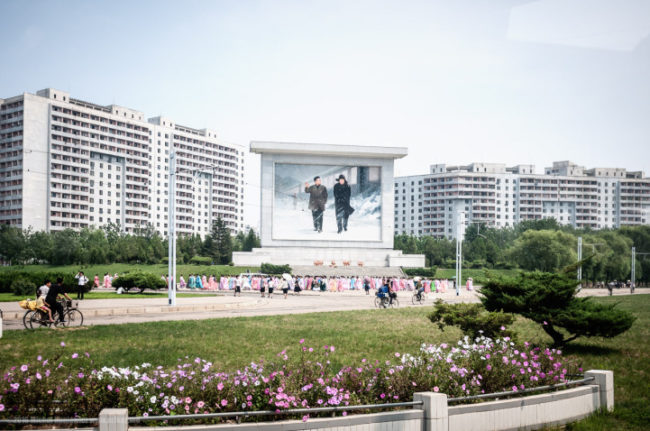
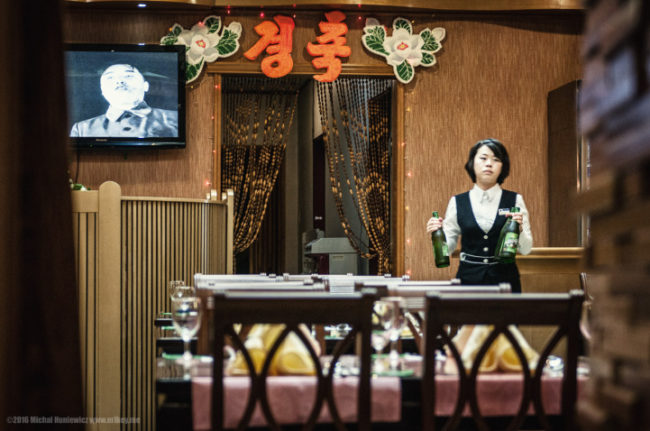
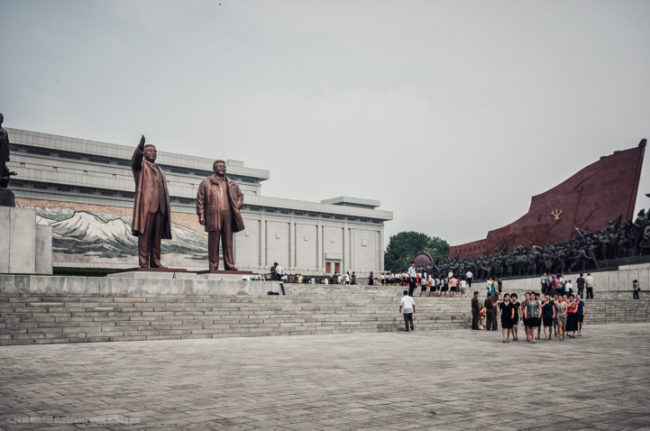
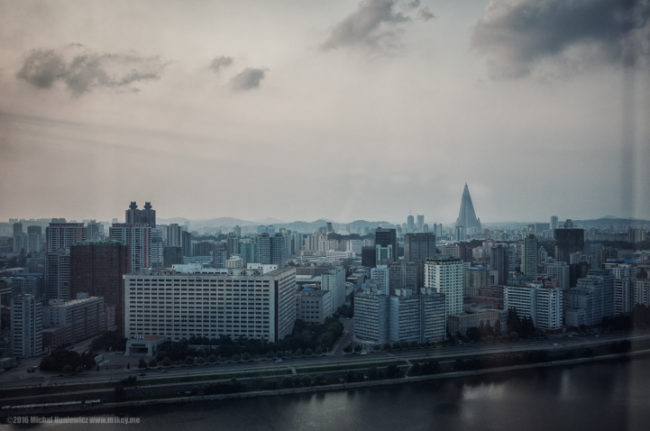

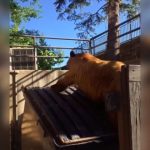
Comments